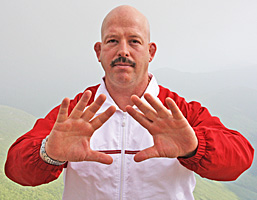May I stretch your mind a bit? Not too far. Just a bit.
Okay, good.
Let’s start with the concept of time and the saying you here so much: “There’s so much to do and so little time.”
Well, I’m now going to tweak this statement to read, “So much to do, so MUCH time.”
Gives you a very different feeling, doesn’t it?
Now, let’s consider something more than simply changing words or self-talk. Let’s think about changing your mental picture about time itself.
For example, many people think of time as something that there’s not enough of. They view it as a scarce resource. They see it in a very limited way. And so, with this notion in mind they set about to organize their day so they can cram as much into as possible.
Hurry, hurry, hurry. Faster, faster, faster.
The quicker, faster, hurry-up mode is one way to live your life. But is it better?
Well, I can argue both sides of the equation. On the one hand, customers in a business tend to like speed. The same can be said about most sports. You’re often measured by how fast you can get from A to B. The faster you are, the more points you can score.
Yet, there’s a yin and a yang to this issue. In China, for example, the most important word in their culture is “man” – pronounced almost like the Jamaican’s say it – “maaahn.” If you can open your mouth and say “aaah” – then add an ‘m’ and an ‘n’ – you’ve got the right sound.
Anyway, what does “man” mean in Chinese?
It means “slowly.” And you must understand this word if you want to understand Chinese culture.
Why?
Because when it’s time to eat, people say, “Man, man chi.” Eat slowly.
When you’re done eating and you’re leaving the restaurant, the hosts say, “Man, man zou.” Walk slowly.
When you’re studying a new subject, the Chinese say, “Man, man xue.” Study slowly.”
Culturally, China is a Taoist (or Daoist) country. Typically, there is no racing to get anything done – unless of course it IS a race.
Yet, last time I checked, China has made phenomenal economic strides in the last 20 years. Far more than what we can say about the U.S.
In China, the media shook their heads in disgust as the U.S. politicians rammed 1,100 page bills down our throats; wherein speed was supposedly so important that the mere reading of the bill wasn’t important.
A meal in China is often a couple hours long. No hurry. No haste. No concept of “wasting time.” No concept of “So much to do – so little time.”
When I go for a massage in China, a typical session is 2.5 hours – and if I want more time, the therapist will GLADLY go longer.
Oftentimes after a good workout, I’ll sit on a park bench just staring ahead, relaxing and breathing. No concept of time.
I’ll do this after a good meal, too.
In China you have internal martial arts like Tai chi, Xingyi and Bagua. What do all of them have in common? They’re usually practiced very, very slowly.
One of the problems with time management and goal setting in the western world is that people are incredibly impatient today. When you hurry, hurry, hurry – you often do more harm than good.
Haste harms the heart.
Now think of this: In China today, with cell phones, tee-vee, radio, jets, cars and so on – the people still think, “man man zou.” Go slowly.
Just think what the term meant a couple thousand years ago or more. Believe me, there was no way the people, as a culture, could even conceive of the idea, “”So much to do, so little time.”
All you’ve got is time. You can organize it and categorize it all you want – but it’s still there. Time is here before you show up – and it’ll be here after you leave.
Instead of rushing and hurrying to get things done – think about how to breathe deeply, relax and still be effective.
In fact, if you do this, you may get MORE done – not less. By going slowly, oftentimes you’ll get more done faster.
What a concept.
So much to do – so much time.
Matt Furey
P.S. Stay on the lookout for my Make it Fun Creative Time Management System. It’ll be available soon – and it’ll reorganize your mind about time in a whole new way.

